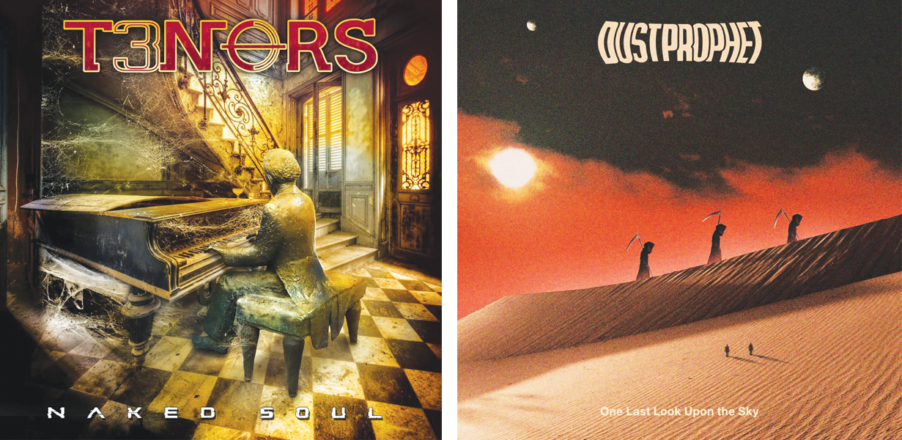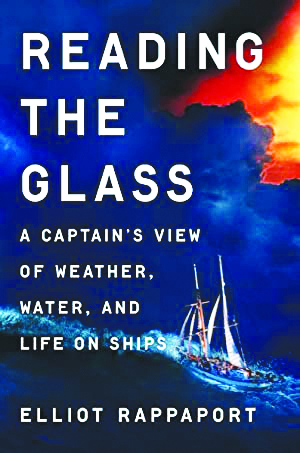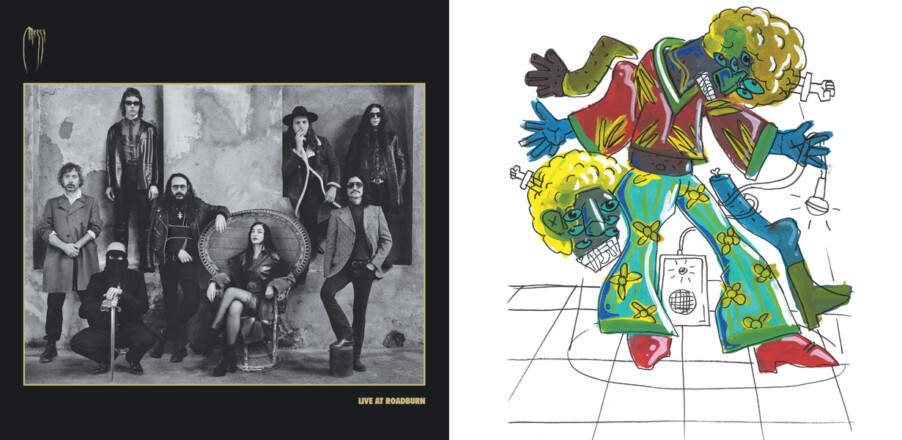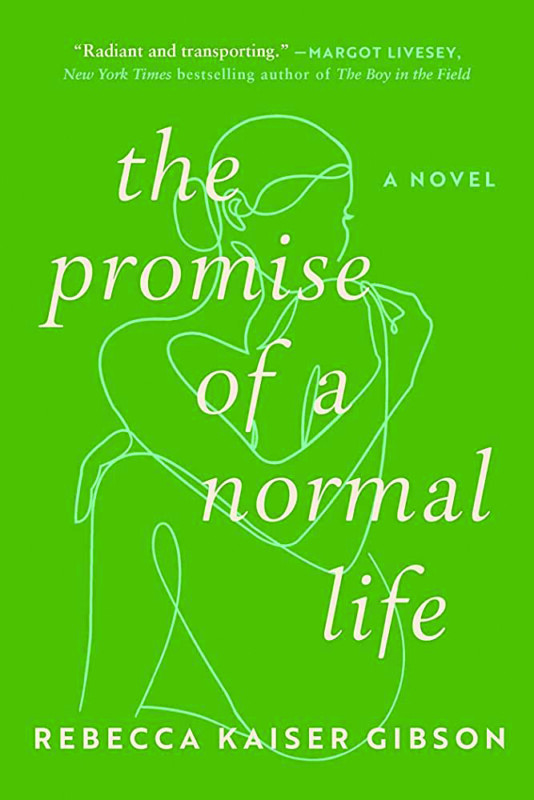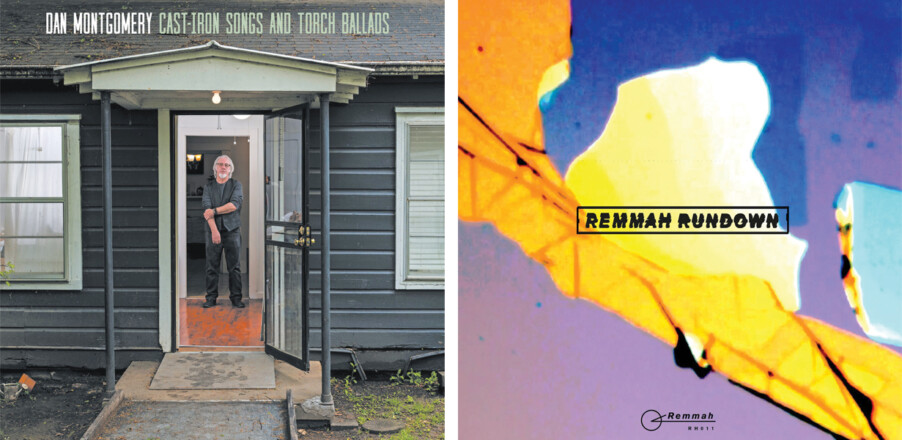T3nors, Naked Soul (Frontiers Records)
Had a weird little exchange the other day, on either Facebook or Twitter, I forget, where this one guy was saying that every album put out by Frontiers Records sounds the same as all the others. I can’t say I concur with that, only because basically all indie labels tend to sign bands that fall into that same trap, like, you won’t hear a Metal Blade-released LP that has much character past Slayer, for example. This one’s somewhat unique in that it features three successful AOR-style singers, Kent Hilli of Perfect Plan along, with Robbie LaBlanc and Toby Hitchock, both of whom have been in bands that specialized in Whitesnake/Jefferson Starship rawk. Spoiler, the result is a bunch of Toto-style radio nuggets with a few Scorpions-ish moments here and there, which is code for “this band has no sense of humor at all and is completely unaware that it’s not 1985 anymore.” That doesn’t mean it’s bad, it just means that wiseasses like me have no patience for it. B
Dust Prophet, One Last Look Upon The Sky (self-released)
Local-to-Manchester, N.H., guy Otto Kinzel continues to prove himself to be a fiercely independent warrior in the worst industry in the world, the music business. Right on time, a new album from guitarist/singer/label-runner/floor-mopper Kinzel, bass player/keyboardist Sarah Wappler and drummer Tyler MacPherson has landed, aimed at expanding on the apocalyptic verism they tabled in a teaser single a little while back, accomplishing that by pouring on classical lit-goth imagery from John Milton, Flannery O’Connor and such. Wappler kicks things off in style with a ghostly contrapuntal piano line serving as an intro, which leads us into “When The Axe Falls,” easily the best thing I’ve ever heard from Kinzel, a doom-speed Metallica joint made more delightfully indie by some guitar rawness. Riff-wise, “Dear Mrs. Budd” evokes next-level Obsessed, featuring a waltz-time bit that’s instantly memorable. New Hampshire, you really need to help these people get to their rightful place in the underground metal hierarchy, I’m serious. A+
Playlist
• Here we go, my precious trolls, just like every Friday, April 28 will be a day on which new rock ’n’ roll albums will appear magically, in your Spotify, because that’s how things are done, in these United States! The first thing that jumped out at me in this week’s list was an album titled Signs of Life, from Neil Gaiman, the human who wrote Sandman and all those other Lovecraft-meets-X-Men books and comics or whatever his trip is, I’ve never really gotten into any of that stuff. But wait, why would an esteemed author make an album when he doesn’t have to? In this case I’ll bet it’s because he’s sick of watching his wife, Amanda Palmer of the Dresden Dolls, make all the albums in the family. I would definitely do that too, like, if Petunia were an author of romance novels, I’d definitely drop the nonfiction book about social media that I’m working on right now and write a book about smooches and sexytimes just to keep her on her toes and get a nice sweet $2,000 advance from Harlequin Romance And Sexytime Book Co. and spend it on a used copy of Spider-Man No. 3 or whatever, as opposed to a signed copy of Sandman No. 1 or whatnot, you feel me? Anyway, folks, Gaiman is not a one-man band, so his music album needed actual musicians, and so he hired a group of instrument-playing slackers he knows, who call themselves the FourPlay String Quartet (see what they did there?), and those people play on this (probably completely pointless) album. I’ll now meander over to the YouTube box and listen to one of the tunes, “Bloody Sunrise,” which I selected because it looks like there’s a hot vampire girl in the video. Yup, it’s a cute vampire girl, and she’s singing a quirky comedy number about crawling out of her coffin and hanging around with bats and owls and trying to get a boyfriend, and oops, there’s the string quartet, and the vampire girl sings decently enough, like a third-place finisher on The Voice, something like that. There’s a random TV in the graveyard, and every once in a while Neil Gaiman (I think) appears on the TV and starts harmonizing with the vampire girl. This would be something for the Neil Gaiman completist on your holiday shopping list, because why wouldn’t they want to see proof that Neil Gaiman once did something incredibly dumb?
• If you’re like me at all, you’d given up on Canadian art-rock bands after the first one you ever heard, but you actually held a little hope for Braids, whose new LP, Euphoric Recall, has a very worthwhile little single, “Evolution.” Overall, it evokes an understated-electro version of Lisa Loeb’s “Stay,” something that Sia would definitely do. It’s a good one.
• Believe it or not, there are bands in Cincinnati, Ohio, friends, and one of them, The National, recorded a single that former President Barack Obama named as one of his favorite songs of 2017, namely “The System Only Dreams in Total Darkness,” which was indeed jagged, slightly aggressive and cool overall. The band’s new album, First Two Pages of Frankenstein, leads off with the song “Eucalyptus,” an art-rock thingamajig that combines the sounds of late-’80s Wire and Guster to create a slightly cowboy-ish atmosphere. It’s perfectly fine.
• Lastly it’s Canadian folk-rockers Great Lake Swimmers, with their new album, Uncertain Country! They’ve released albums on the Nettwerk Records label, which is code for “they’re consistently good.” The new single “Moonlight, Stay Above” is way too Bon Iver-y for my tastes, but other than that is shimmery and peaceful and blah blah blah.
If you’re in a local band, now’s a great time to let me know about your EP, your single, whatever’s on your mind. Let me know how you’re holding yourself together without being able to play shows or jam with your homies. Send a recipe for keema matar. Message me on Twitter (@esaeger) or Facebook (eric.saeger.9).

